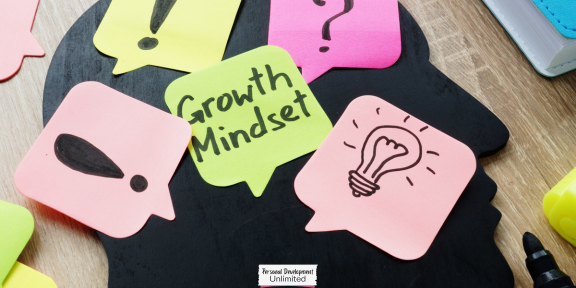Have you ever wondered why some people seem to effortlessly achieve their goals while others struggle to make progress? The answer lies in the power of mindset. Mindset is a term that is often thrown around, but what does it really mean? In this comprehensive guide, we will explore the definition of mindset and delve into its immense influence on personal development, success, goal-setting, relationships, communication, the workplace, and overcoming challenges. By the end of this article, you will have a clear understanding of what mindset is and how to cultivate a positive one for optimal growth and fulfillment.
Mindset Definition
The Merriam-Webster Diction mindset definition is:
1 : a mental attitude or inclination
2 : a fixed state of mind
Mindset refers to a collection of beliefs, attitudes, and thoughts that shape our behavior and shape the way we interpret and respond to events in our lives. It is a lens through which we view the world and ourselves. Our mindset determines whether we see challenges as opportunities for growth or as insurmountable obstacles. It affects our motivation, resilience, self-confidence, and overall well-being. Knowing this mindset definition allows us to be on the same page and move to other aspects of mindset.

The Power of Mindset
The power of mindset lies in its ability to shape our reality. As Henry Ford famously said, “Whether you think you can or you think you can’t, you’re right.” Our mindset sets the foundation for our actions and determines the outcomes we achieve. If we believe we are capable of achieving our goals and have a growth mindset, we are more likely to take consistent action, persevere through obstacles, and ultimately succeed. On the other hand, a fixed mindset can limit our potential as we may shy away from challenges, fear failure, and avoid stepping out of our comfort zones.
Fixed Mindset vs. Growth Mindset
There are two primary types of mindsets: fixed mindset and growth mindset. Individuals with a fixed mindset believe that their abilities, intelligence, and talents are fixed traits that cannot be changed. They tend to avoid challenges, give up easily in the face of setbacks, and feel threatened by the success of others. On the contrary, individuals with a growth mindset believe that their abilities can be developed through hard work, dedication, and learning from failures. They embrace challenges, persist in the face of obstacles, and find inspiration in the success of others.
The Importance of Mindset in Personal Development
Mindset plays a crucial role in personal development as it influences how we approach and navigate our lives. With a growth mindset, we are more likely to have a positive attitude towards learning and personal growth. We are open to new experiences, eager to acquire new skills, and willing to step outside of our comfort zones. This mindset enables us to develop resilience, adaptability, and self-belief, which are essential qualities for personal growth and fulfillment.
Mindset and Success
Success is not solely determined by external factors such as intelligence or talent. In fact, mindset plays a significant role in determining whether we achieve success or not. Those with a growth mindset are more likely to set ambitious goals, persist through challenges, and learn from failures. They view setbacks as temporary and use them as stepping stones towards improvement. On the contrary, individuals with a fixed mindset may be hindered by self-doubt, fear of failure, and a limited belief in their abilities, which can impede their progress towards success.
Mindset and Goal-Setting
Setting and achieving goals is an integral part of personal and professional growth. A positive mindset is essential for effective goal-setting and attainment. Individuals with a growth mindset are more likely to set challenging goals, break them down into manageable steps, and persistently work towards them. They see setbacks as opportunities for learning and adjust their strategies accordingly. On the other hand, a fixed mindset can lead to a fear of failure, a reluctance to set ambitious goals, and a lack of motivation to take action.

Cultivating a Positive Mindset
Now that we understand the importance of mindset, how can we cultivate a positive one? It starts with self-awareness and a willingness to challenge our existing beliefs and thought patterns. Here are some strategies to help you cultivate a positive mindset:
- Practice self-reflection: Take time to reflect on your thoughts, beliefs, and attitudes. Identify any negative or limiting beliefs and challenge them with positive and empowering thoughts.
- Surround yourself with positivity: Surround yourself with positive influences, whether it be supportive friends and family, uplifting books or podcasts, or inspirational role models. Their positivity can help shape your mindset.
- Practice gratitude: Cultivating gratitude shifts your focus towards the positive aspects of your life. Take time each day to acknowledge and appreciate the things you are grateful for.
- Embrace challenges: Instead of avoiding challenges, embrace them as opportunities for growth. Step out of your comfort zone and take on new experiences that will stretch your abilities.
- Learn from failures: Instead of dwelling on failures, view them as valuable learning experiences. Analyze what went wrong, extract the lessons, and use them to improve and grow.
Mindset Exercises and Techniques
In addition to the strategies mentioned above, there are numerous mindset exercises and techniques that can help strengthen and cultivate a positive mindset. Here are a few examples:
- Affirmations: Repeat positive affirmations to yourself daily. Affirmations are positive statements that help rewire your subconscious mind and reinforce empowering beliefs.
- Visualization: Visualize yourself achieving your goals and living the life you desire. Visualization enhances motivation, builds confidence, and helps align your actions with your desired outcomes.
- Journaling: Keep a journal to record your thoughts, emotions, and progress. Journaling provides clarity, helps identify patterns of thinking, and allows for self-reflection and growth.
- Meditation: Engage in regular meditation practice to calm the mind, increase self-awareness, and develop a more positive and focused mindset.
- Mindfulness: Practice mindfulness by being fully present in the moment, observing your thoughts without judgment, and cultivating a non-reactive attitude towards challenges and setbacks.
Mindset in Relationships and Communication
Mindset not only influences our personal development and success but also plays a crucial role in our relationships and communication with others. A positive mindset fosters empathy, understanding, and effective communication. It allows us to approach conflicts with an open mind, seek mutually beneficial solutions, and build stronger connections with others. On the other hand, a negative mindset can lead to misunderstandings, defensiveness, and a breakdown in relationships. Being aware of our mindset and actively working towards a positive one can greatly enhance our interactions with others and nurture healthy and fulfilling relationships.
Mindset in the Workplace
Mindset is equally important in the workplace. Employers are increasingly recognizing the value of a growth mindset in their employees. Individuals with a growth mindset are more likely to embrace challenges, take initiative, and continuously seek opportunities for learning and improvement. They are adaptable, resilient, and open to feedback, which are all valuable qualities in a professional setting. By cultivating a growth mindset, you can enhance your performance, unlock your potential, and increase your chances of success in the workplace.
The Role of Mindset in Overcoming Challenges and Setbacks
Challenges and setbacks are inevitable in life. However, our mindset greatly influences how we respond to these obstacles. With a growth mindset, we view challenges as opportunities for growth and resilience. We see setbacks as temporary roadblocks rather than permanent failures. This mindset enables us to bounce back from setbacks, learn from failures, and ultimately overcome challenges with greater ease. On the other hand, a fixed mindset can hinder our ability to overcome challenges as we may become overwhelmed by self-doubt, fear of failure, and a limited belief in our abilities. Cultivating a growth mindset is key to developing the resilience and determination needed to navigate through life’s challenges.

Conclusion of Mindset Definition
In conclusion, mindset is a powerful force that shapes our thoughts, beliefs, and actions. It influences our personal development, success, goal-setting, relationships, communication, the workplace, and our ability to overcome challenges. By understanding the definition of mindset and actively cultivating a positive one, we can unlock our full potential, achieve our goals, and live a more fulfilling and meaningful life. So, embrace the power of mindset and embark on a journey of self-discovery and growth. Your mindset holds the key to mastering your mind and transforming your life.
Personal Development Unlimited is your go-to place to be You, Without Limits. We bring together personal development and self-improvement articles, books, courses and videos in one place. Find your self-growth opportunities easily.
Comments
0 comments



